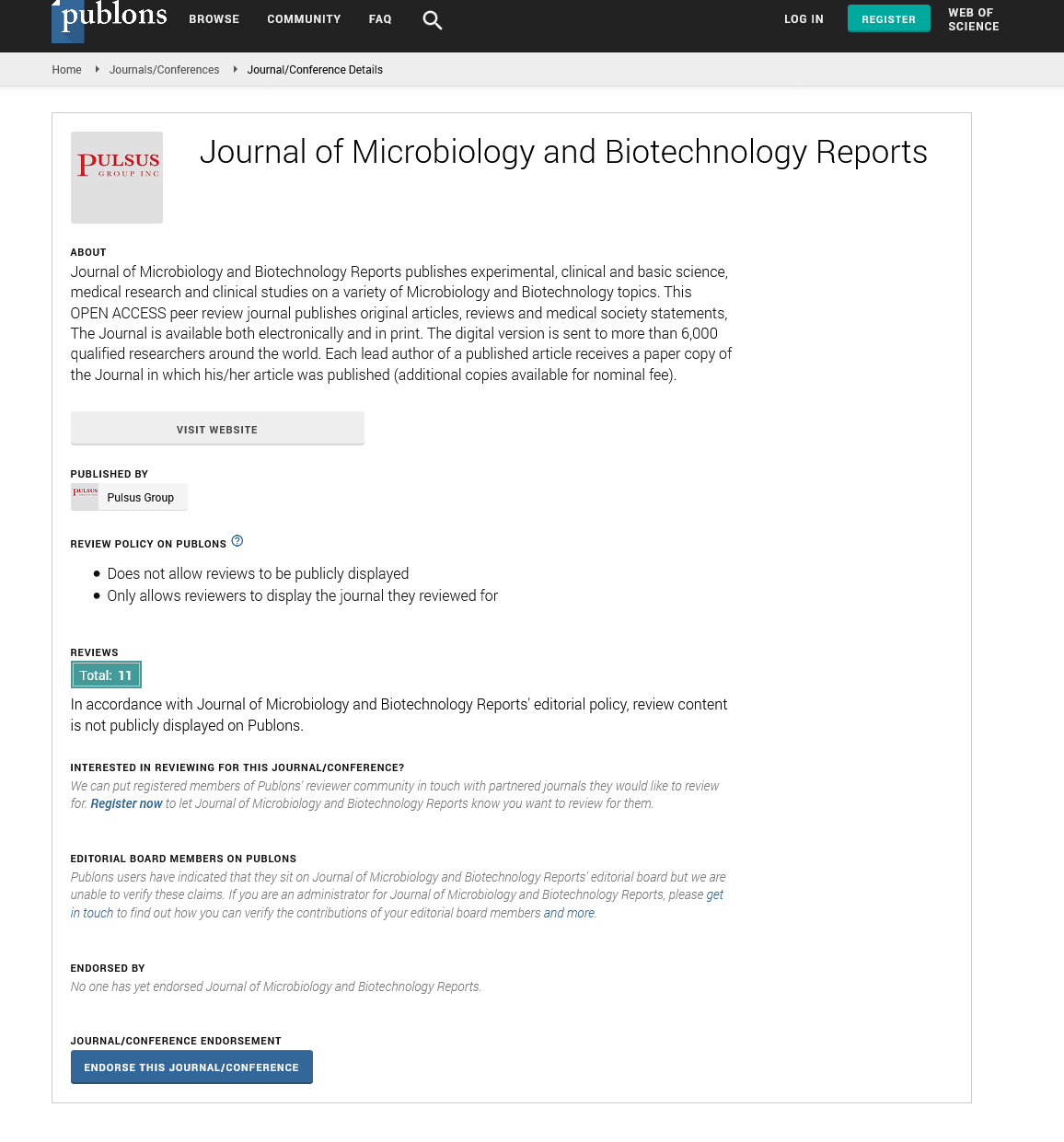
Sign up for email alert when new content gets added: Sign up
Abstract
A thorough assessment of biotechnological options for improving heavy metal tolerance in neglected and underused legume crops
Author(s): Abigail Smith*Heavy metal contamination of agricultural land and water as a result of growing industrialization and urbanization, as well as natural processes, has become one of the most significant limitations to crop growth and production. Plants should be able to manipulate numerous physiological, biochemical, and molecular processes to increase their growth and development under heavy metal stress, according to a number of studies. It is now feasible to customize legumes and other plants to overexpress stressinduced genes, transcription factors, proteins, and metabolites that are directly implicated in heavy metal stress resistance thanks to contemporary biotechnological tools and procedures. This article gives a comprehensive overview of several biotechnological techniques and/or tactics for increasing heavy metal detoxification by boosting phytoremediation processes. Synthetic biology methods utilized in the engineering of legume and other crop plants to withstand heavy metal stress are also reviewed, as well as some pioneering examples of synthetic biology tools being used to change plants for specific features. CRISPR-based plant genetic engineering, including their involvement in altering the expression of numerous genes/transcription factors to increase abiotic stress tolerance and phytoremediation capacity utilizing knockdown and knockout techniques, has also been critically examined.
Full-Text | PDF




